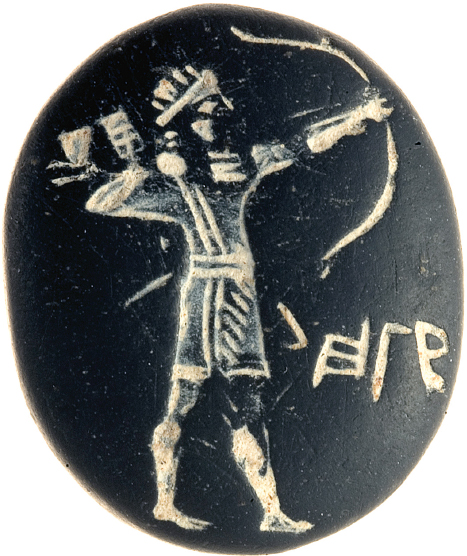TTHE LEGACY OF ANOTHER PEOPLE who took advantage of Egypt’s collapse to found an independent state may have been even more far-reaching than that of the Phoenicians. For a period of several centuries, a people known as the Hebrews controlled first one and then two small states on the western end of the Fertile Crescent, Israel and Judah. Politically unimportant when compared with the Egyptians or Babylonians, the Hebrews created a new form of religious belief, a monotheism based on the worship of an all-powerful god they called Yahweh (YAH-way). Beginning in the late 600s B.C.E., they began to write down their religious ideas, traditions, laws, advice literature, prayers, hymns, history, and prophecies in a series of books. These were gathered together centuries later to form the Hebrew Bible, which Christians later adopted and termed the “Old Testament.” These writings later became the core of the Hebrews’ religion, Judaism. Jews today revere these texts, as do many Christians, and Muslims respect them, all of which gives them particular importance.

Hebrew SealThis black stone seal dating from the seventh century B.C.E. depicts an archer shooting an arrow. The archer chose to show himself dressed in Assyrian style, an indication of the Assyrian cultural influence that accompanied Assyrian military expansion. (Photo: Clara Amit. Courtesy, Israel Antiquities Authority)

